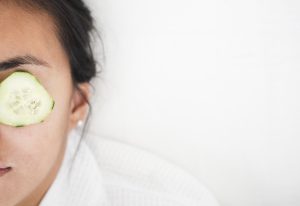Good Night, Sleep Tight
Good Night, Sleep Tight
By Kim Morrison
Founder and Director, Twenty8

It seems the most natural thing to do to keep up with our fast-paced lives is to sacrifice sleep, so we can cram more into our twenty-four hours. But slow down. Research is now suggesting that even if you miss only a few hours of shut-eye tonight, you are more likely to become ill tomorrow.
On average people spend 24 years of their lives asleep. Something that takes up that much time and is so closely linked to our immune system must be one of the most important things for us to respect.
If ever you have felt ill or under the weather, the body’s instant response is to want to sleep. There is a very good reason for this. Cytokines (immune system hormones) flood throughout the body when an infection is present and also act as a powerful sleep inducer, giving your body the chance to heal and save energy.
Getting a good night’s sleep may be one of the most important things you can do to maintain good health and live longer. It won’t matter if you exercise, eat well, take supplements or meditate, if you don’t get enough sleep for prolonged periods of time, your health will eventually suffer. An immune system without enough sleep is like a car with no fuel. At some point it will say ‘enough!’
It can be as simple as turning down the lights of an evening and using low voltage bulbs or candles, switching off from ALL wifi and EMF stimulating devices is imperative, using a red light filter on your electronic devices and wearing blue blockers can be a game changer for so many. Also, steering away from stimulating beverages like chocolate, coffee and alcohol in the evening can help. Even a meal consisting of fish and green vegetables will help enhance a good night’s sleep. These foods are rich in magnesium and calcium, both necessary to help the body relax and for brain chemistry balance.
Good Sleeping Statistics
- The time most adults need to sleep each night is around 8-9 hours.
- An ideal temperature for a good night’s sleep is around 18-23°
- Moving in your sleep is normal – most adults will move between 40-70 times a night.
- Sleep is vital for the proper functioning of all systems in the body.
- Rest from relaying messages to and from the outside world gives the brain a chance to perform maintenance.
- Sleep is an important factor linked to longer life.
You know you are not getting enough sleep when you:
- feel drowsy throughout the day
- have a desire to sleep in
- fall asleep within minutes of lying down
- find it difficult to get up
- are grumpy and irritable for no reason
- feel emotional at the drop of a hat
- need a cup of coffee first thing in the morning
- dose off watching television at night
There are five distinct stages of sleep:
The brain emits various electrical patterns at various times of the day. When you are awake and in a busy thinking state, your brain emits what is known as beta waves. As you go through the various stages of sleep your brain emits different electrical patterns as follows.
- Eyes barely move, muscle activity slows and you drift in and out of slumber. You can easily be woken at this stage. Often you are in alpha state (the same state when meditating) just before falling asleep.
- Eye movements almost stop, brain waves become slower. You will need to be prodded to be woken.
- This is considered one of the stages of deep sleep. Extremely slow brain waves called delta waves can be measured in this phase.
- No eye movements at all, muscles are relaxed, blood pressure is at its lowest and heart and breathing rate are at their slowest. This is the stage when the body repairs itself with the aid of hormones.
- REM (Rapid Eye Movement) occurs approximately 70-90 minutes after you fall asleep and recurs throughout the night. Breathing becomes more rapid, irregular and shallow. The heart rate increases and blood pressure rises. Brain waves break up and begin to look like those when you are awake, however, while your brain is very active, your body does not move at all in this phase.
To ensure you get a good night’s sleep, get into positive healthy habits before you even get up. Allow yourself to wake as it gets lighter in the morning and as mentioned get up to see the sun rise. Try not to get straight onto your phone or computer first thing. Reclaim your mornings and make nature and self-care your priority, even if only for a short amount of time. It is worth it.
Studies show that if you exercise regularly, you sleep better. Time spent in the outdoors also increases your ability to get a good night’s sleep. Prepare the bedroom for sleep by lighting a vaporiser and placing two drops each of Lavender, Chamomile and Orange an hour before you are ready. Try not to watch television in bed, it may only stimulate you. Reading can do the same, but a lot of people find reading positive and helpful for a deep sleep.
Even though my grandmother would have suggested a hot toddy as the best way to get off to sleep, it might work for some to try a warm milky drink before bed because it contains an enzyme called tryptophan, which induces sleep. Soothing classical music can help your nervous system to slow your heart rate, breathing and blood pressure. If you are suffering from sleep disorders like insomnia, some of the more innate natural therapies like kinesiology, acupuncture, chiropractic or herbal medicine may help you to get a better night’s sleep and create more healthy sleep patterns.
I personally found the essential oils of lavender, mandarin, orange, frankincense, chamomile and neroli to be beneficial for sleep. I created a synergy blend called Instant Calm with these oils in it to make it easier and I love to place three drops into my diffuser in my bedroom half an hour before sleep or place a drop or two on a tissue to place under my pillow slip. This is my go-to blend when travelling and on the road a lot with work. Blending 2 drops into a few sprays of Magnesium Health Spray and massaging the soles of my feet just before bed also helps get a better nights sleep.
Ultimately if you are not sleeping well means that something may not be quite right in your life and this is the body’s way of letting you know. Stress and worrying are often the most common causes. Look at your diet and make sure you include plenty of leafy green veges, quality protein and fats and small amounts of quality carbs like sweet potato. Ensure you are getting enough exercise into your day – research suggests just 20mins of fast paced walking will help a better nights sleep. And try your hand at meditating or at least slowing down and quieting the mind.
And finally, being more mindful for just a few moments a day can really support the brain to switch off and become more calm and centered. I cannot stress enough that one of the best times to do this is to watch the sun rise each morning. Allowing that morning light into your eyes helps set all your body’s cell and mitochondrial functions in motion. This sets your natural circadian rhythms, and helps the body naturally want to sleep each evening.
Being grateful mindful and fully present is a beautiful way to calm the mind. Do not underestimate the power of being in nature, really notice a conversation with someone, be aware of what you are eating and be very conscious of how you speak!
All of this teaches us to connect within and when restless or unable to sleep you can try to recapture the essence of these feelings, instead of counting sheep!
Kim xx
 Kim Morrison
Kim Morrison
Founder and Director – Twenty8
Kim set a world record as the youngest female to run 100 miles in less than 24 hours in 1989. 68 year old world record holder Cliff Young was her mentor at the time and to this day lives by his ethos that success is 90% mental and 10% physical. She has used her running story as a direct metaphor for life – riding the highs, hitting the walls, pushing through the pain barriers, crossing the line and never, ever giving up!
Kim believes it is your inner power, passion and commitment and having truckloads of self-belief that distinguishes you as an achiever. It’s about visualising your dream and going for it – regardless of the feedback you receive or the challenges you face. As a 5 times best-selling author, creative director of Twenty8, aromatherapist, health and lifestyle educator and a multi-tasking mum and wife, Kim is someone who shares her essential tools for self-care, discipline, leadership and teamwork and most of all how to have an attitude with sparkle.

